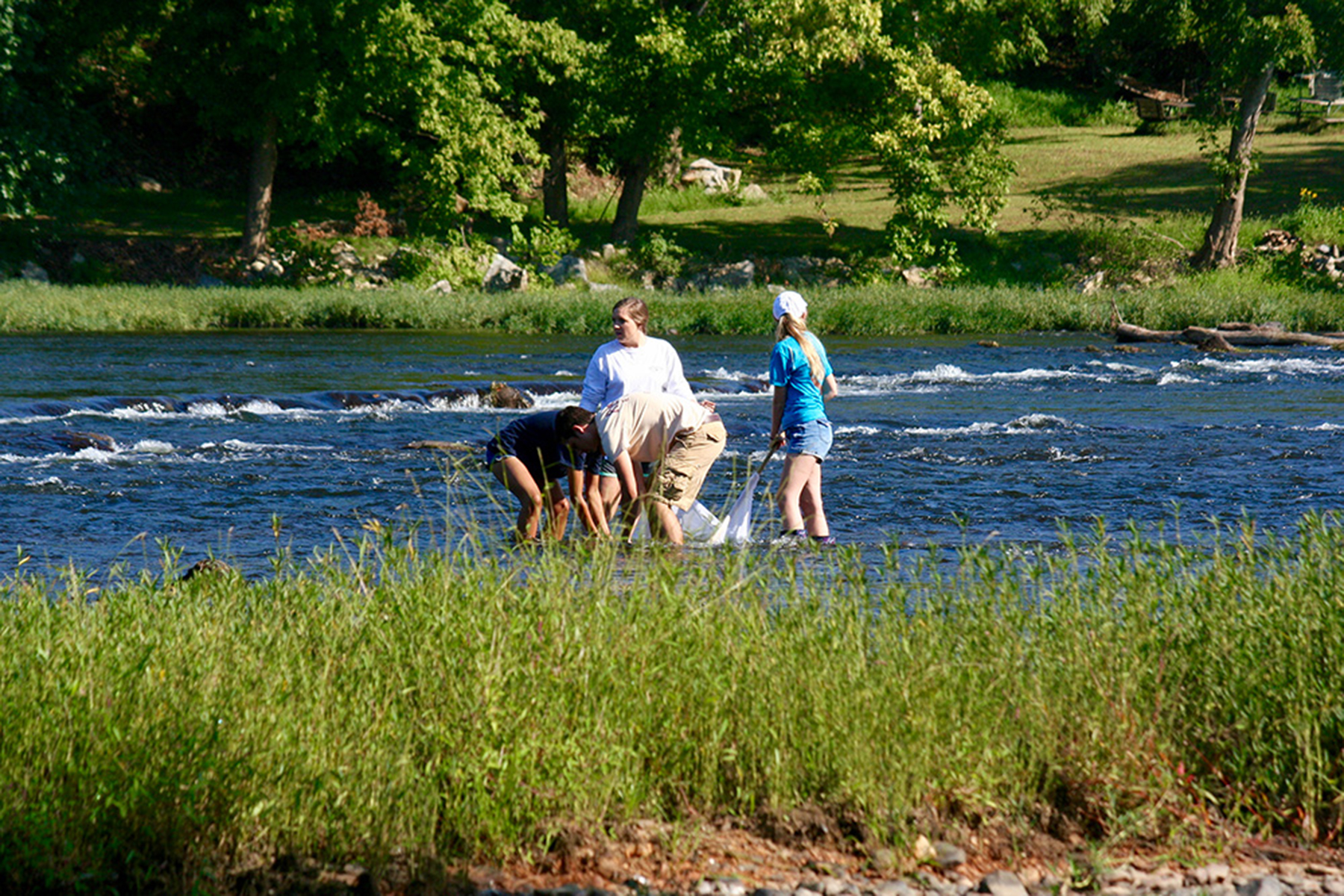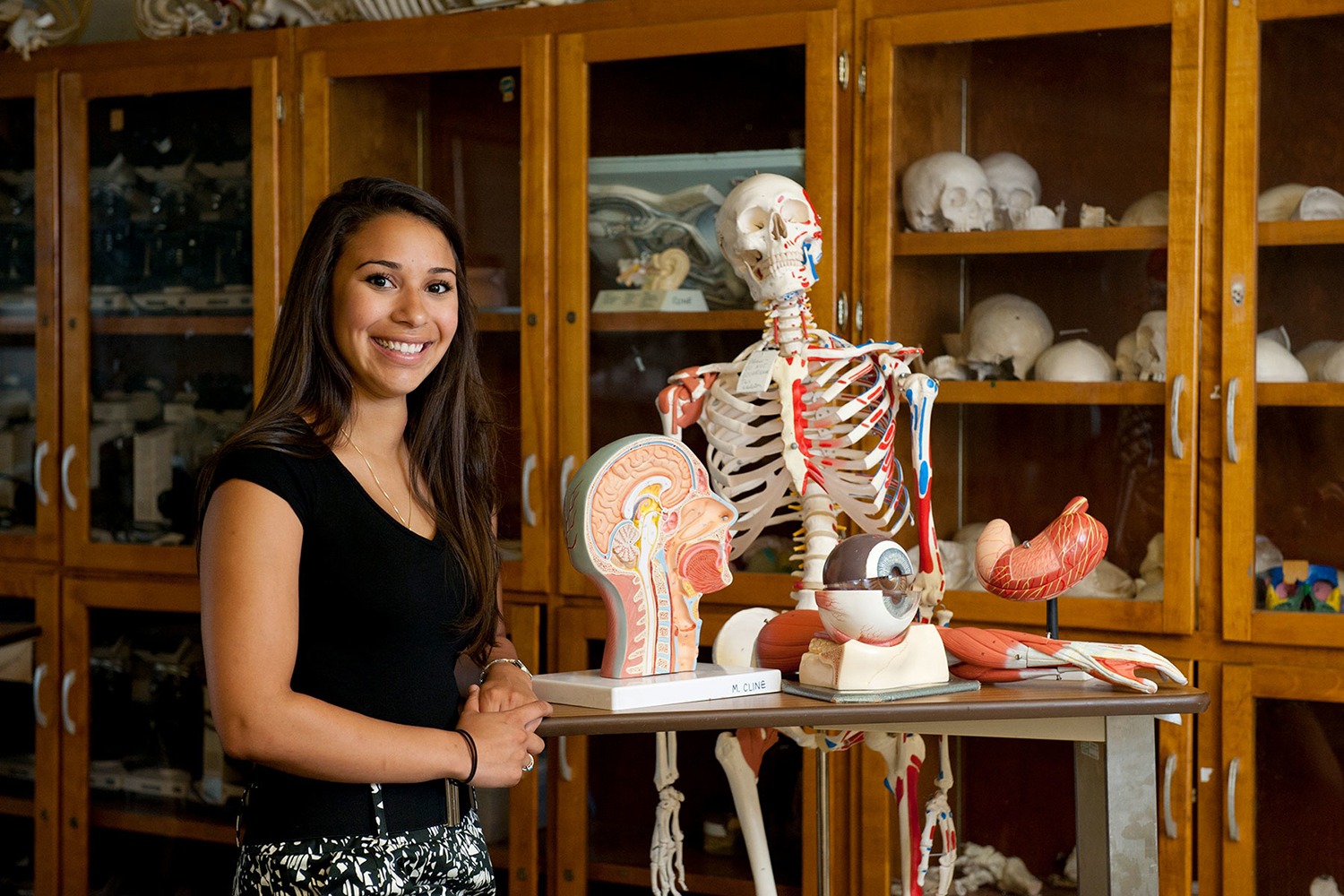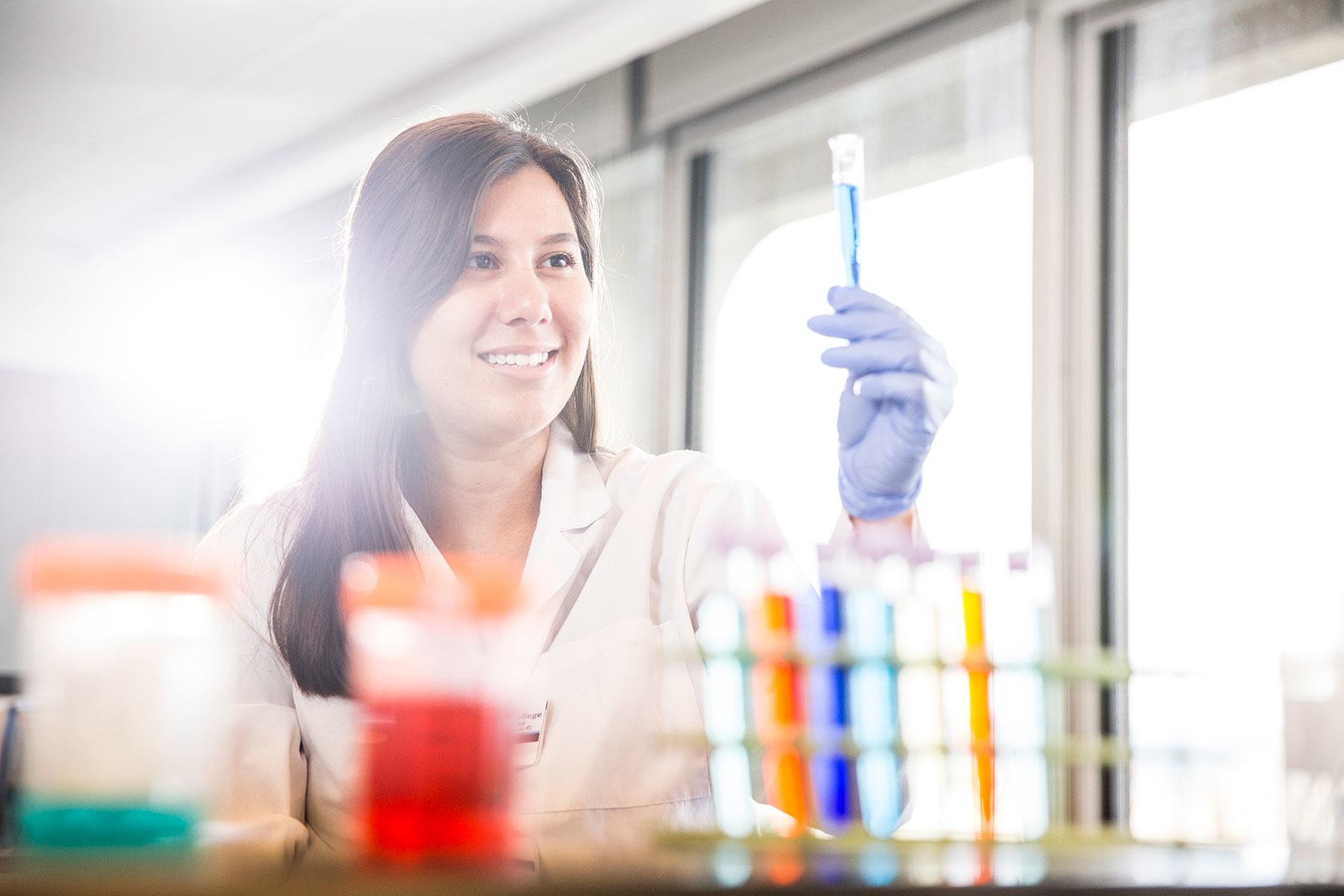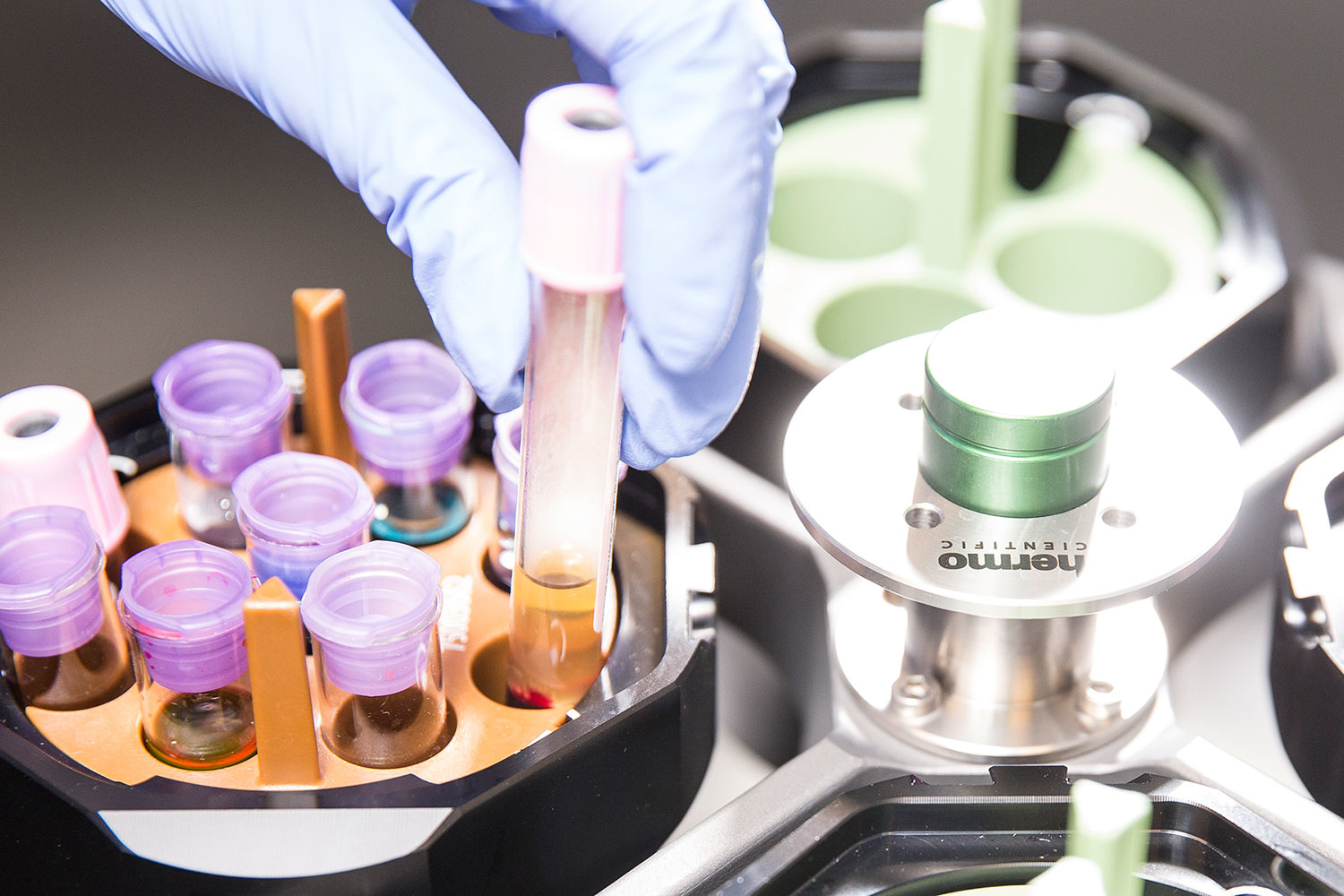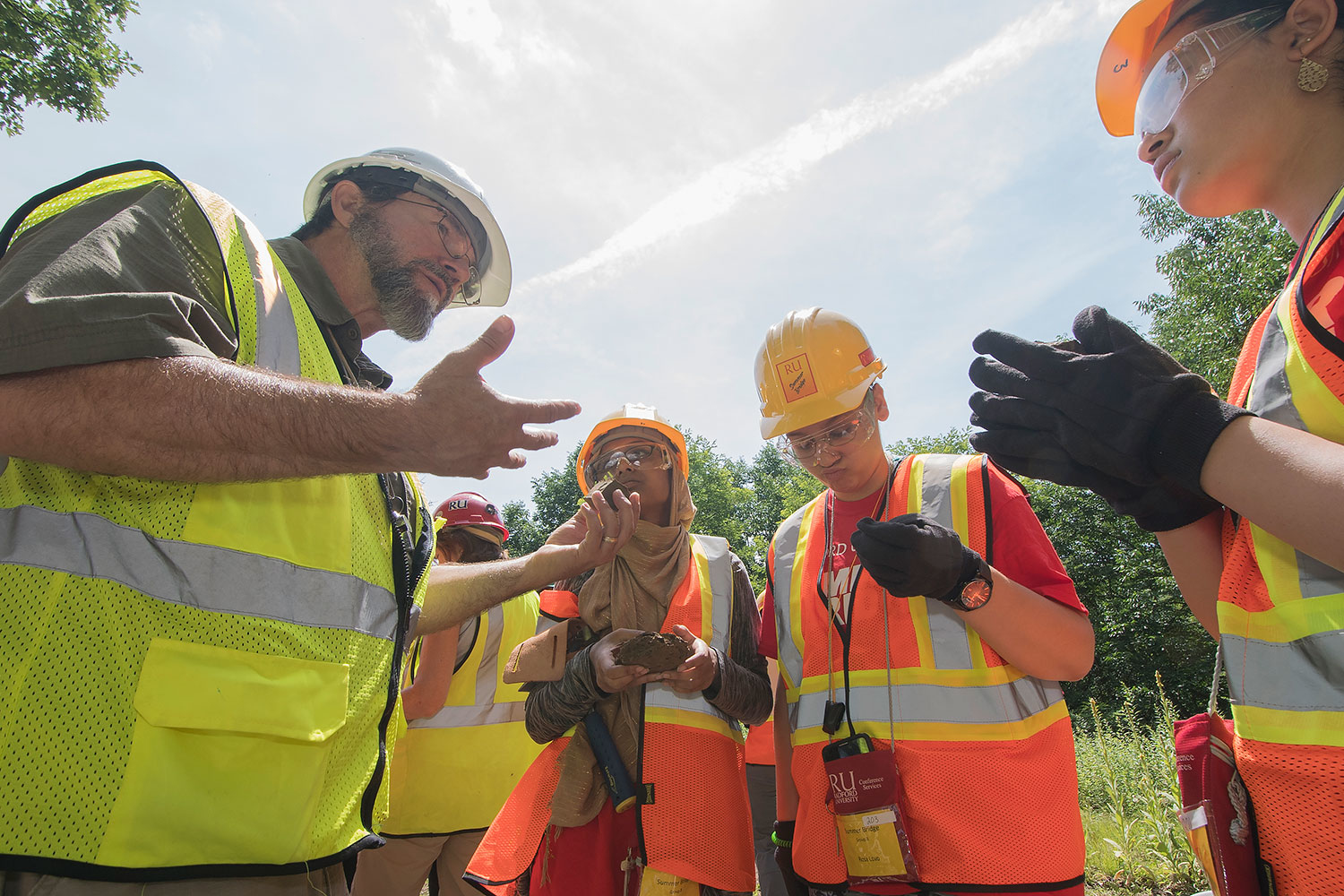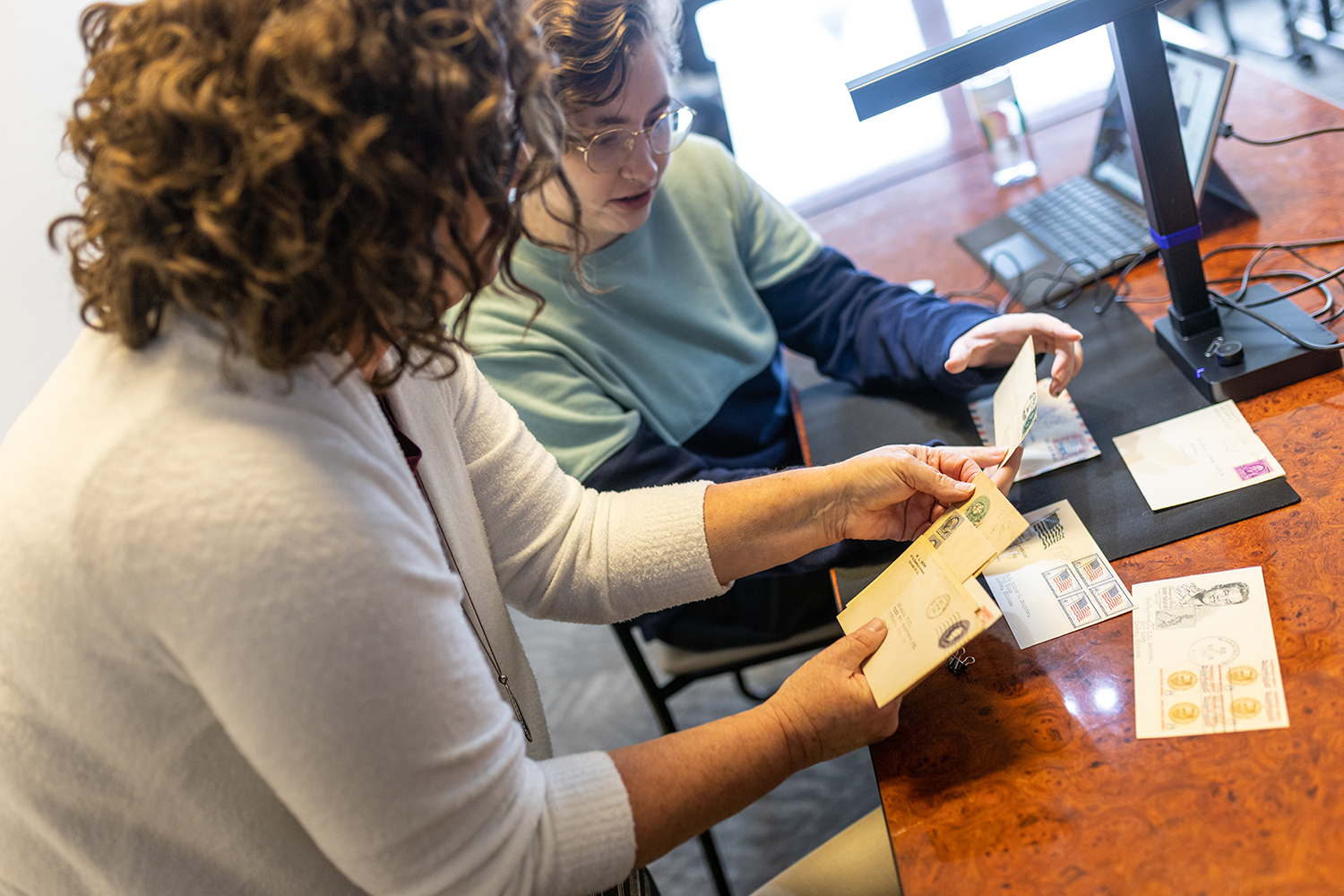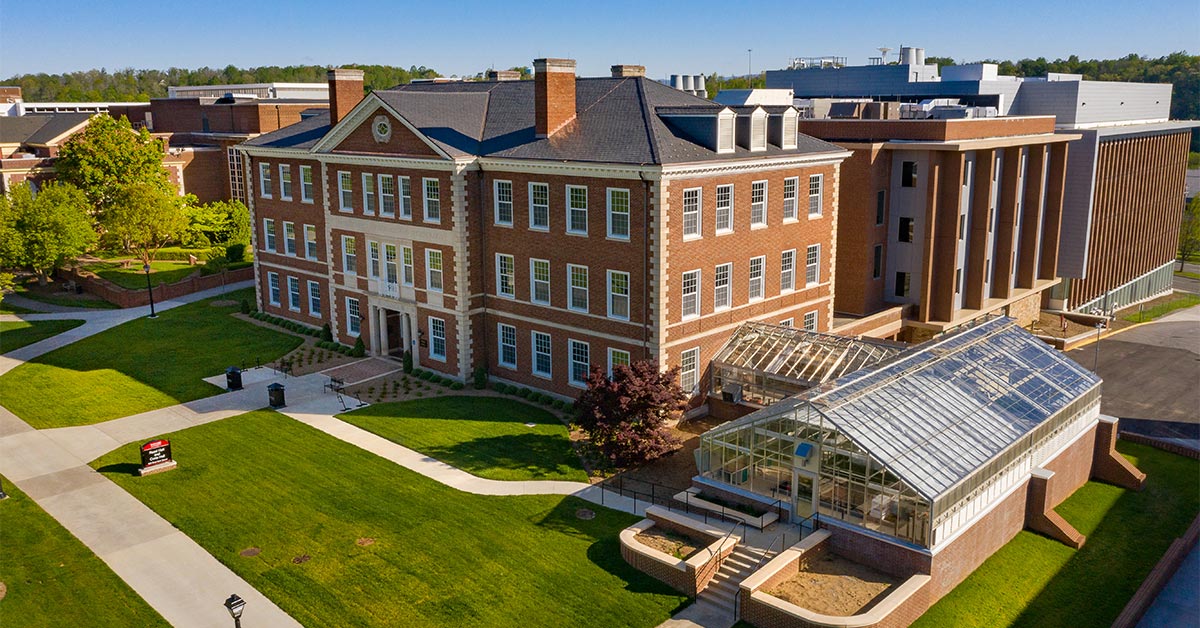Overview
The Biology program offers you the opportunity to develop your science identity through authentic, research-based learning experiences in and outside of the classroom. Each of our unique pathways through our major provides a learning experience that aligns well with your career aspirations, including in biological science, biomedical sciences, environmental science, or education and community outreach.
Why Study Biology at Radford?
You'll have the opportunity to:
- Use modern technology, instrumentation, field equipment, and human/non-human models that allow students to collect their own data or learn using authentic examples.
- Develop a research project in the New River Valley, the Amazon or in Appalachia (RARE Study Abroad Program).
- Learn Anatomy and Physiology using human cadavers, which are typically only for students attending medical school.
- Study, cultivate, and relax with our botanical garden in the Radford University Greenhouse.
- Study and document the historical biodiversity in the New River Valley in the Biology Department's Natural History Collection.
- Hike through and study local terrestrial and aquatic ecosystems at the Selu Conservancy, Bissett Park, and Wildwood Park.
- Learn from accessible, expert faculty members that encourage "drop-in" conversations for you to "do" science in our individual research programs.
Program Outline and Optional Minors
Second-Year Requirements:
- Evolution (BIOL 222)
- Science, Culture, and Society (BIOL 340).
If your schedule allows, you can begin taking other upper-level biology courses in your second year. Your final two years will be dedicated exploring a variety of topics in your upper-level biology courses, ranging from molecular biology to forest ecology.
Biology Teacher Licensure
Students who seek to teach Biology in secondary school will complete their content area requirements at the undergraduate level and can choose to complete their licensure requirements at the graduate level. These requirements must be completed prior to being admitted to the Teacher Education Program.
You can also successfully obtain a minor in Biology after completing 24 credit hours in the required courses.
- Biology - Applications in Scientific Reasoning Minor
- Biology - Applied Learning Minor
- Biology - General Minor
- Biology - Scientific Reasoning Minor
Opportunities for Biology Students at Radford
Awards
Biological research is important in preparing students to achieve higher levels of scientific scholarship and to be competitive in future academic or career goals. As such, the Biology program offers academic awards to promote scientific excellence and achievement and provide outstanding students with the opportunity to design and conduct research independently or under the mentorship of faculty members.
Clubs and Organizations:
- BBB - National Biological Honor Society
Faculty Advisor: Jamie Lau
Follow us on Facebook & Instagram - Student chapter of The Wildlife Society
Advisor: Karen Powers
Follow us on Facebook - Greenhouse & Selu Botanic Club
Advisor: Stephanie Huckestein
Follow us on Facebook & Instagram - Pre-Med Association
Advisor: Matt Close
Follow us on Instagram - Pre-Dental Club
Advisor: Rhett Herman - Outdoor Programs
- RU Sustainability
Careers and Internships
You will be advised on your progress through your major and your careers by a faculty member in your area of interest. We can connect you to internship opportunities that broaden your skills and professional development toward your career. For example, you can be a veterinarian technician in the New River Valley or near your hometown and earn internship credits toward your degree.
Recent graduates from our program work in environmental (e.g., U.S. Fish and Wildlife) and health-related fields (e.g., in the Carilion or Lewis-Gale Hospital System or the Virginia Department of Health), as well as in secondary education in the New River Valley. According to the Bureau of Labor Statistics, the median yearly salary is wide ranging for students graduating with a biology degree, from $55K to $100+.
Detailed List of Career Pathways:
- Health care: Physician, veterinarian, dentist, optometrist, medical laboratory scientist, physical therapist, occupational therapist, medical assistant, pharmacist, clinical laboratory technician
- Education and Outreach: K-12 science teacher, university professor, naturalist guide, nature interpreter, science writer
- Technician: Industrial scientist, epidemiologist, bioengineer, microbiologist, environmental or agricultural scientist
- Natural resources: Wildlife biologist, conservation biologist, horticulturist, forester, soil scientist, wetland biologist, park ranger, fisheries biologist, curator
Admissions Requirements
Admission to Radford University and completion of prerequisite courses.
Freshman Biology majors must register for BIOL 160 in their first or second semester.
Transfer students, and any other students, who do not take BIOL 160 must take either an additional BIOL 460 or one additional Biology elective at the 300 or 400 level of equal or greater credit hours.
Transfer students with credit for BIOL 105 or equivalent transfer credit may substitute the transferred course for BIOL 111. Transfer students with credit for BIOL 102 from a Virginia Community College, or an equivalent course from another institution, may substitute that course for a Biology elective.
-
4 learning pathways
Chose from Biomedical and Health Sciences, Environmental Biology, Biological Siences, and Education and Outreach.
-
90% of our students
present their work at a symposium or conference where networking with other scientists is important to developing a science identity.
-
18 full-time faculty
that are very accessible for 250-300 students in the entire program on average.
-
50% of our Biology majors
joing a faculty member's resarch program during their undergraduate journey at Radford.
-
20% of our students
become authors on a publication or successful grant that funds their research during their time in the undergraduate Biology program.
Participate in undergraduate research
Undergraduate research is a great first step in the transition from student to professional biologist! Research allows you to follow your own interests and explore aspects of biology that cannot be encapsulated in your coursework. Getting started is easy! Consider what most interests you about biology, find a few faculty members with similar interests, reach out to the faculty and begin working together!
“I loved being a biology major because of the hands-on and research-based learning that takes place in all of the lab courses, in and outside of the classroom!”
